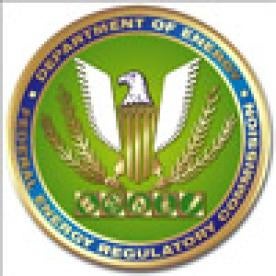At its May 21, 2020 meeting, the Federal Energy Regulatory Commission (“FERC” or “Commission”) issued an order soliciting comments on a proposed policy statement respecting the waiver of tariff requirements.[1] As discussed further below, the proposed policy statement represents a marked change relative to FERC’s existing practices on tariff waivers and, if adopted, would limit the circumstances in which an entity would be able to obtain waiver of a tariff provision to excuse actions or omissions occurring prior to the submission of a petition for relief.
When issuing the proposed policy, each of the commissioners emphasized the importance of the proposed policy statement and encouraged broad engagement from the industry. For example, Commissioner Danly observed that the policy statement “marks a potential return to fundamentals” and encouraged all interested parties to file comments. Notwithstanding the broad agreement about the importance of the proceeding and FERC’s more general recognition of challenges associated with COVID-19, FERC has established an expedited comment schedule in this proceeding, with initial comments due June 4, 2020 and reply comments due June 11, 2020.
-
Overview of Proposed Policy Statement
FERC historically has granted requests for waiver of tariff provisions in tariffs filed pursuant to the Federal Power Act (“FPA”) and Natural Gas Act (“NGA”) in certain circumstances, including in instances where an entity inadvertently failed to comply with the terms of the filed rate. Although whether to grant waiver has been a matter of FERC discretion, Regional Transmission Organizations and Independent System Operators (together “RTO”), transmission providers, generation owners, natural gas utilities, and other market participants historically have benefitted from this policy by obtaining waiver of various tariff provisions in order to remedy past non-compliance or where application of the filed rate would lead to inequitable or unintended results.
In the proposed policy statement, FERC explains that it is proposing to modify its policy respecting waivers of tariff provisions out of concern that the Commission’s waiver orders “have sometimes drifted beyond the limits imposed by the filed rate doctrine and the rule against retroactive [rate]making.”[2] FERC notes that these doctrines prohibit FERC from authorizing retroactive changes or adjustments to a FERC-accepted tariff except in two circumstances: (1) where parties are on notice that a rate, term, or condition is subject to retroactive adjustment; and (2) where granting relief is consistent with the Commission’s authority pursuant to FPA Section 309 and NGA Section 16 to take any actions “necessary or appropriate” to carry out the purpose of the act so long as doing so conforms with the purposes and policies of Congress and does not contravene any term of the relevant statute. According to FERC, the consequence of these limitations is that FERC may not grant retroactive waiver of a tariff provision unless an applicant can demonstrate that doing so would not violate the filed rate doctrine or the rule against retroactive ratemaking because there was adequate prior notice or, alternatively, granting relief is consistent with FPA Section 309 or NGA Section 16, as applicable.
In order to better align FERC policy with these limitations, FERC offers the following guidance regarding the procedures for seeking retroactive relief from tariff provisions:
- First, when requesting relief in connection with actions or omissions that occurred prior to the date of filing, the applicant should characterize its filing as a request for remedial relief rather than a waiver. The Commission explains that when considering such requests, it will focus on what remedy “is required to cure acknowledged or alleged deviations from a filed tariff.”[3] The term waiver, in contrast, should be reserved for requests for prospective relief and petitions for remedial relief when a tariff expressly authorizes regulated entities to seek a retroactive waiver.
- Second, an entity must file a petition for declaratory order – rather than a waiver request – if it is seeking relief because it acted in a manner inconsistent with the tariff. Alternatively, if the entity filing a request believes that another entity has acted in a manner inconsistent with the tariff, the request should be filed as a complaint.
- Third, any petition for declaratory order or complaint alleging that there has been a violation of the filed rate should request action in accordance with FPA Section 309 or NGA Section 16.
Acknowledging that the proposed changes to Commission policy could lead to consequences that “appear to be harsh outcomes by comparison to past practice,”[4] FERC invites public utilities to consider modifying their tariffs to allow waivers to be granted in a manner that does not conflict with the filed rate doctrine and rule against retroactive ratemaking.
- FERC explains, for instance, that a tariff could be modified to state that failure to comply with a particular deadline may be waived by order of the Commission in order to give FERC flexibility to grant waiver on a case-by-case basis. FERC notes, for instance, that certain RTO tariffs include language allowing an entity to petition the Commission for waiver of the procedural deadlines applicable to participation in the forward capacity markets. According to the Commission, “[a]dvance notice that a specific tariff provision may be waived by a future Commission order accomplishes the core purposes of the filed rate doctrine and provides an opportunity to seek relief for past errors without running afoul of the rule against retroactive ratemaking.”[5] The Commission emphasized, however, that it would consider such tariff revisions on a case-by-case basis and that excessively broad waiver provisions could “erode commercial certainty in rule-based outcomes, therefore undermining the core purpose of the filed rate doctrine and the rule against retroactive ratemaking.”[6]
- FERC also notes that a tariff could be modified to allow certain types of errors to be cured by the relevant entities themselves within a reasonable period of time “after a default has occurred or an error has been discovered” in order to reduce the need to seek redress from the Commission.[7] For instance, the tariffs of RTOs generally set out time periods during which invoices and prices can be adjusted without Commission authorization.
Even in those circumstances in which an advance notice provision applies, however, FERC states that it will not automatically grant a request for remedial relief. Instead, FERC states that it will apply the four-part test that it has historically used in evaluating requests for waiver of a tariff filed with FERC pursuant to the FPA, which requires an applicant to demonstrate that: (1) the underlying error was made in good faith; (2) the waiver is limited in scope; (3) granting the waiver would address a concrete problem; and (4) granting the waiver would not have undesirable consequences, such as harming third parties. Notably, however, FERC states that it plans to require a stronger showing in those cases where a petitioner is seeking remedial relief for its own failure to comply with a tariff. For instance, the Commission proposes to clarify that:
- It generally will be more persuasive that an error was made in good faith if the petitioner demonstrates that non-compliance was due to something more significant than inadvertent error or administrative oversight;
- Arguments that a petition is limited in scope will be less compelling if the petition involves “long-standing tariff provisions that affect large numbers of similarly-situated entities”[8];
- Arguments that granting relief is necessary to address a concrete problem will be more compelling if the problem was not created by the petitioner; and
- Petitions will generally be denied where a protestor credibly contends that granting relief will result in undesirable consequences, such as harm to third parties.
The Commission adds that where an entity is seeking remedial relief for its own failure to comply with the tariff, the petitioner may also submit a self-report to the Office of Enforcement. The Commission noted, however, that a self-report would not appear to be necessary when a petition is seeking relief because the petitioner’s act or omission caused it to lose an opportunity that would otherwise be available, such as where a petitioner missed a deadline associated with a requirement that had to be met in order to provide service. In that case, the petitioner would not have violated the tariff, but would simply be seeking relief so that it could pursue a particular opportunity or participate in a program offered in accordance with the relevant tariff.
-
Potential Implications
If adopted, the policy statement would effectively preclude an entity from obtaining relief from a tariff provision for acts or omissions that occur prior to the date of a filing except in very narrow circumstances unless relevant service providers (such as RTOs) modify their tariffs to allow the RTO or the Commission specifically to provide for such after-the-fact relief. These types of changes to tariffs – such as including “except as otherwise ordered by the Commission” -- would create tension with general RTO efforts to promote finality and financial certainty and to treat customers on a non-discriminatory basis. In addition, where remedial relief is available, it appears that applicants will now be held to a higher standard when requesting relief related to their own non-compliance. Not only would this make it more difficult to obtain waiver of a tariff provision, the policy statement would also increase the costs associated with filing such a request, as an entity would now be required to pay the filing fee applicable to petitions for declaratory order, which is currently set at $30,000. This change in process will also likely slow down the Commission’s ability to respond quickly to requests for waiver of tariff provisions as the petition for declaratory order process frequently takes longer than the typical waiver request process.
The Commission’s decision to adopt the policy statement would make it even more important that entities participating in FERC-jurisdictional markets comply with all applicable tariff provisions. Companies could review their risk management practices and financial decisions to determine whether those relied on the Commission’s ability to provide relief in unusual circumstances. While FERC historically has been willing to grant waiver of tariff provisions, an entity that fails to comply with a deadline or other requirement may now find that no such relief is available. As noted above, the potential impact of the policy could be mitigated if RTOs and other utilities revise their tariffs to include provisions providing entities with greater flexibility to obtain remedial relief from the Commission. It remains to be seen, however, how far the Commission will allow utilities to go in hardwiring this type of flexibility into their tariffs and any such change would require a tariff filing with FERC. The Commission’s reference to the potential for such provisions to undermine the purposes of the filed rate doctrine and the rule against retroactive ratemaking suggests that entities that seek to significantly expand the availability of such relief may encounter resistance from the Commission.
It also is not clear why an advance notice provision should be a prerequisite to relief in cases where it is the entity taking service—rather than the utility that filed the tariff—that is seeking relief from a deadline set out in a FERC-jurisdictional tariff, such as deadlines applicable to the interconnection process or participation in a forward capacity auction. As the Commission acknowledges, the courts have held that retroactive adjustment of rates does not violate the filed rate doctrine or rule against retroactive ratemaking in certain cases where buyers have been put on notice that the rate at issue was subject to change.[9] This reflects that one of the primary purposes of the filed rate doctrine and the rule against retroactive ratemaking is to ensure that customers have prior notice of the rates that they will be charged for jurisdictional service.[10] Requiring advance notice when an entity providing service seeks to retroactively modify the rates, terms, or conditions of service furthers the objectives of these doctrines by preventing the utility from retroactively increasing the rates associated with past service. Yet, the issue of advance notice may be less relevant when it is the entity receiving service that is requesting waiver. Of course, there may be other valid reasons to deny a request submitted by an entity receiving service, such as to avoid harm to other customers or ensuring non-discriminatory service.[11] But it is more difficult to discern why requiring advance notice in such circumstances is necessary to accomplish the purposes of these doctrines.
This proceeding is worth attention -- the manner in which the Commission resolves this and other issues will have a significant impact on the extent to which the Commission’s policy acts as a barrier to obtaining any form of remedial relief.
[1] Waiver of Tariff Requirements, Proposed Policy Statement on Waiver of Tariff Requirements and Petitions for Complaints for Remedial Relief, Docket No. PL20-7-000 (filed May 21, 2020).
[2] Id. at P 1.
[3] Id. at P 12.
[4] Id. at P 15.
[5] Id. at P 16.
[6] Id. at n.46.
[7] Id. at P 17.
[8] Id. at P 20.
[9] Id. at P 3.
[10] See, e.g., Columbia Gas Transmission Corp. v. Fed. Energy Reg. Comm’n, 831 F.2d 1135, 1141 (D.C. Cir. 1988) (explaining that “purchasers . . . cannot plan their activities unless they know the cost of what they are receiving”).
[11] See, e.g., Natural Gas Clearinghouse v. Fed. Energy Reg. Comm’n, 965 F.2d 1066 (D.C. Cir. 1992) (noting that one of the goals of the filed rate doctrine is “avoiding discriminatory pricing”).





 i
i

